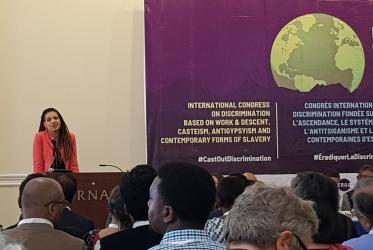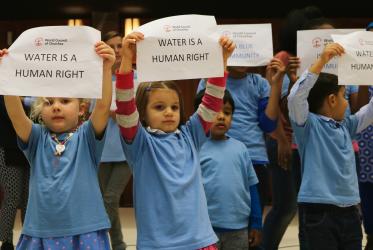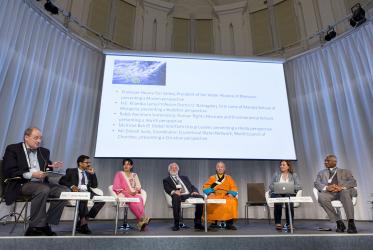Displaying 1 - 20 of 50
Ukraine: Responding to humanitarian need
08 September 2022
Doing his best without being the best
07 September 2018
Seven weeks of Lent highlight water crisis in Africa
01 March 2017
WCC Blue Community implements water changes in the Ecumenical Centre
16 February 2017
‘Unprecedented times of hopelessness’ in Holy Land
11 July 2016











